Emergencies aren’t always dramatic, Hollywood-style events.
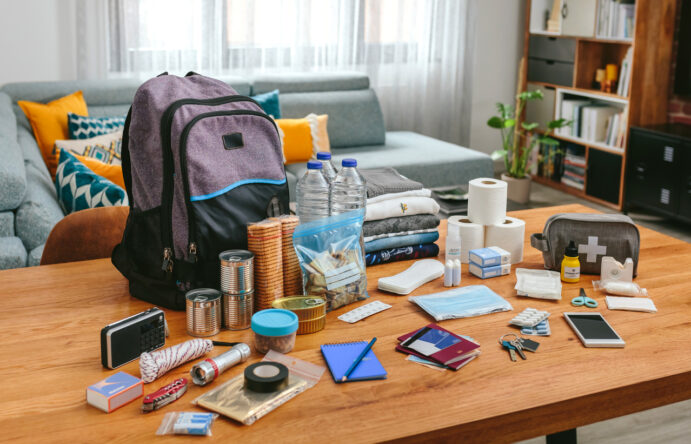
More often, they’re small moments that catch you off guard—power cuts, bad storms, a sudden illness—and the little things you kept around “just in case” suddenly become absolute lifelines. Being prepared doesn’t mean living in fear. It’s about setting yourself up to move through tough situations with less chaos and a bit more calm. These are the essentials that can quietly save you a lot of stress when life goes sideways.
1. A fully charged power bank
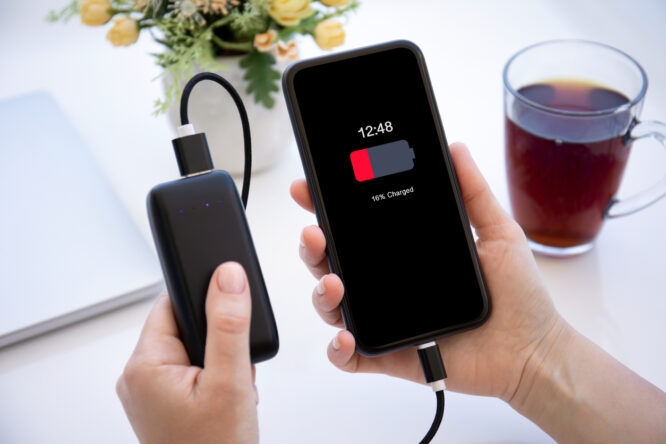
In a crisis, losing your phone connection has nothing to do with boredom—it’s losing access to help, updates, and loved ones. A good power bank lets you keep communication going when the power’s out or your phone’s on its last legs. It’s one of those things you’ll almost forget you own until the exact moment you desperately need it—and then you’ll be beyond grateful you thought ahead.
Look for one with a decent capacity that can charge your phone more than once. And every so often, make it a habit to charge it back up because a dead power bank is just a very fancy paperweight when the lights go out.
2. Bottled water or a water filtration system
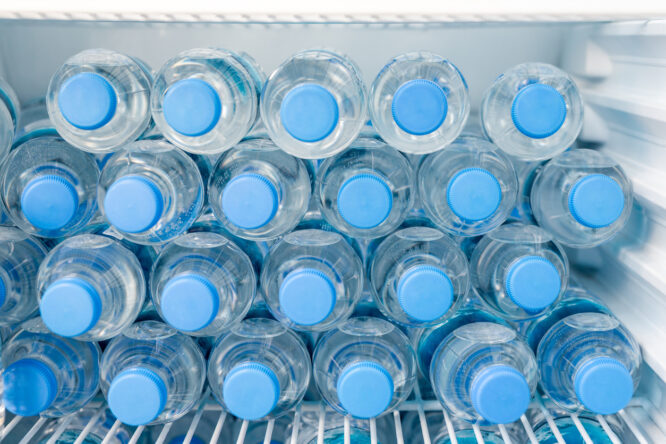
Water is easy to take for granted—until you turn on the tap and nothing comes out, or you’re warned that the supply might not be safe. Having a basic stockpile of bottled water or a good filtration device gives you one less critical thing to worry about when things go wrong.
Experts usually recommend about three litres per person per day for drinking and minimal hygiene needs. It sounds like a lot until you’re in the middle of a crisis, and then it won’t feel like nearly enough.
3. A solid first aid kit
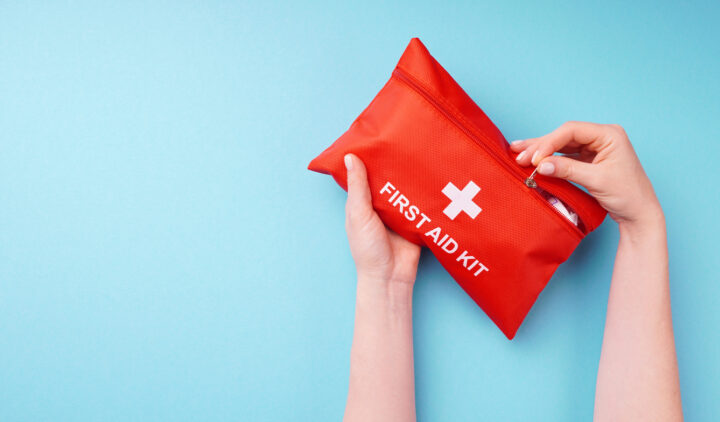
When medical help isn’t immediately available, a basic first aid kit can be the difference between a minor problem and a full-on crisis. Think more than just plasters—include antiseptic, gauze, scissors, painkillers, allergy meds, and anything you personally might need.
It’s not about playing doctor. It’s about handling small injuries yourself so you’re not clogging up emergency services for a cut finger. A good kit won’t fix everything, but it can buy you time and prevent little things from getting worse.
4. A reliable torch (and backup batteries)
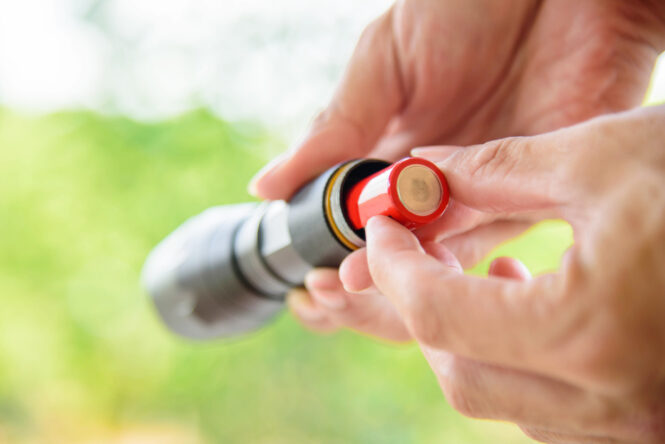
Stumbling around in the dark during a blackout isn’t just annoying—it can be downright dangerous. A good torch cuts through that disorientation instantly. Bonus points if you pick up a headlamp too, so you can use your hands freely while you fix, pack, or move.
Phone lights will only get you so far, and they’ll drain precious battery fast. A proper torch feels like an unnecessary luxury until you’re using it to calmly find your way through a power cut without smashing your shin on the coffee table.
5. Shelf-stable food you’d actually eat
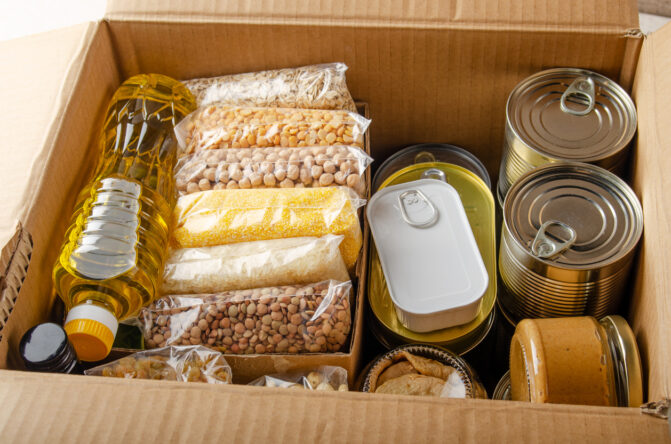
Stocking up for emergencies doesn’t mean filling your cupboards with things you secretly hope you’ll never have to touch. It means having food you could actually stomach if the takeaway apps are down and the fridge is dark. Think hearty tinned soups, pasta, rice, nut butters, cereal bars—real comfort food you’d genuinely be relieved to have.
It’s not just about survival—it’s about morale. Eating something familiar when the world feels unstable is a small but powerful way to keep yourself grounded and functioning.
6. A manual can opener
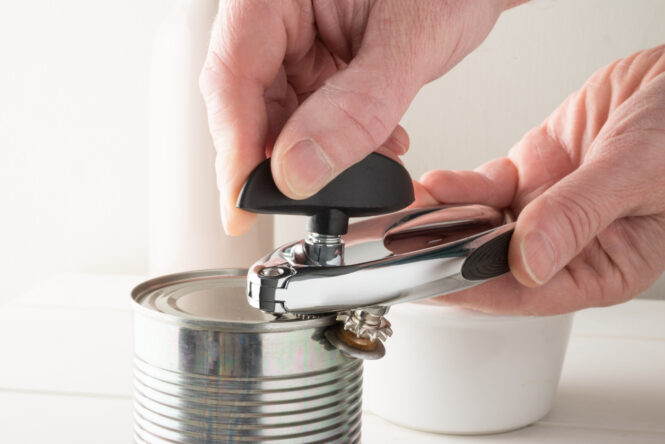
Sounds basic, but you’d be shocked how often people stock up on tinned goods and forget they can’t actually open them without electricity. Electric can openers are great—right up until the moment the grid goes down.
Stick a sturdy manual opener in your kitchen drawer and forget about it until you need it. It’s the kind of quiet, unglamorous tool that earns its keep the moment the first power outage hits.
7. Hard copies of key documents
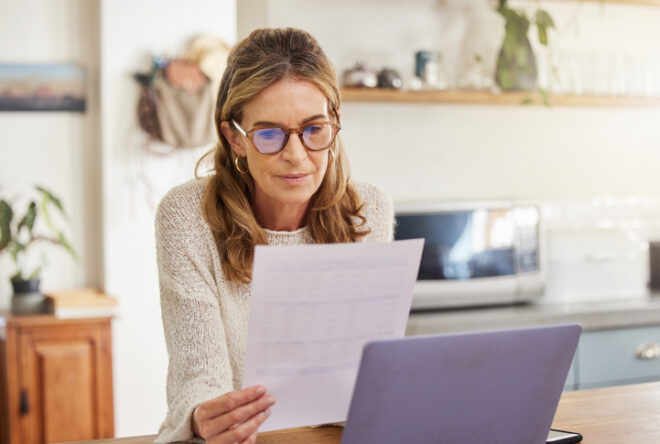
If you ever need to evacuate quickly—or even just deal with insurance or identity issues after a flood, fire, or burglary—having paper copies of important documents can save huge amounts of time and stress. Think passports, birth certificates, insurance papers, and any critical medical records.
Store them in a waterproof pouch or folder somewhere easy to grab. In emergencies, clarity beats chaos every time—and you’ll be glad you’re not trying to memorise policy numbers in a panic.
8. A battery-powered or hand-crank radio
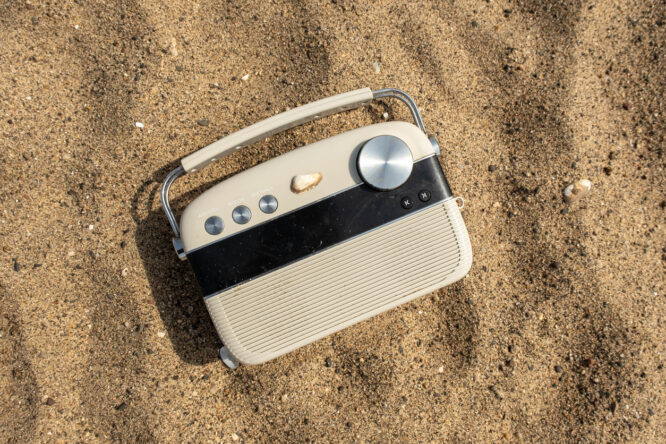
We’re so used to the internet being our main information source that it’s easy to forget mobile networks can fail too. When that happens, a battery-powered radio—or better yet, a hand-crank one—can reconnect you to emergency broadcasts and important updates.
It might sound old-fashioned, but in real emergencies, reliable information is survival gold. A few minutes of real news can mean the difference between staying safe and wandering blindly into more danger.
9. Extra blankets and warm clothing layers

Heating systems aren’t guaranteed in extreme weather or power failures. Having extra blankets, thermal clothes, and even things like hot water bottles can keep you safe and comfortable if temperatures suddenly drop.
Layering up isn’t just about comfort—it’s about preventing hypothermia if things get serious. It’s also a simple, low-cost way to add serious resilience to your home setup without needing expensive gear.
10. A basic toolkit and duct tape
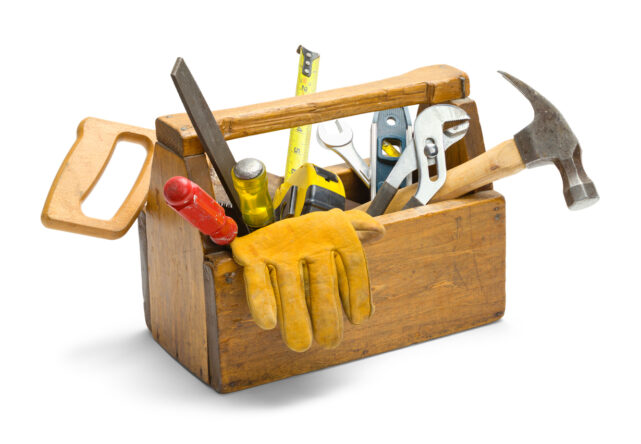
Emergencies often involve small repairs—securing a broken window, fixing a leaky tap, patching something up to get through the night. A basic toolkit with a hammer, screwdriver, adjustable wrench, and a roll of heavy-duty duct tape can handle way more than you’d expect.
You don’t need to be a builder. Just having the ability to make quick, sturdy fixes keeps you in control when the situation feels otherwise out of your hands.
11. Emergency cash (in small bills)
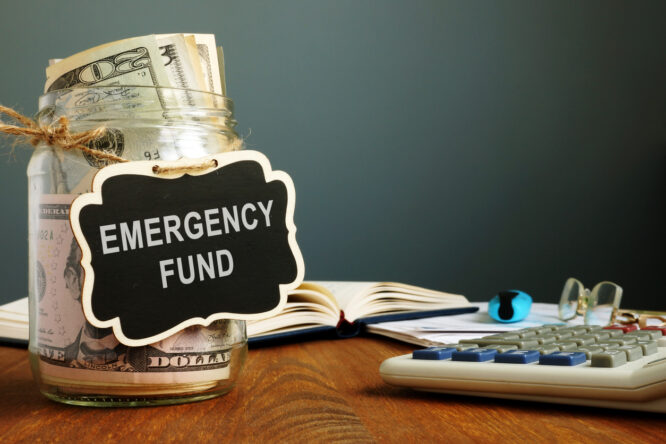
If card readers are down, ATMs are out, or you’re somewhere that only takes cash, having a small stash tucked away can cover fuel, food, or last-minute supplies when nothing else will do. Keep it hidden but accessible. You don’t need to carry huge amounts—just enough to bridge the gap until things stabilise. Trust me, you’ll feel a lot calmer knowing you can buy what you need without scrambling.
12. A grab-and-go bag with essentials
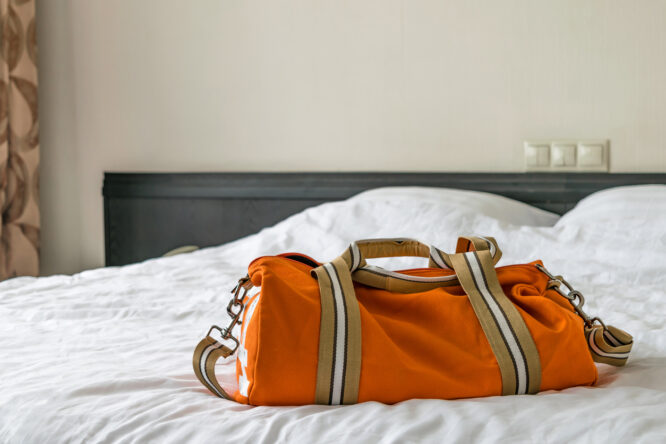
You don’t have to be obsessed with worst-case scenarios for this to make sense. A basic backpack packed with essentials—medication, basic toiletries, a spare phone charger, copies of documents, snacks, a hoodie—means that if you ever need to leave quickly, you’re not packing while panicking. Even if you never touch it, knowing it’s there creates an invisible layer of calm beneath everyday life. It’s like insurance: boring until you need it, priceless when you do.




